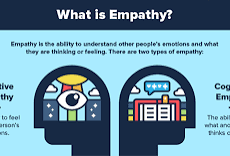The Power of Dialogue: Bridging Divides and Fostering Understanding
Dialogue, the art of conversation and exchange of ideas between individuals or groups, is a powerful tool that has the potential to bridge divides, foster understanding, and build connections. In a world where differences in opinions, beliefs, and values often lead to conflict and misunderstanding, dialogue offers a pathway towards mutual respect and empathy.
Why Dialogue Matters
Dialogue plays a crucial role in resolving conflicts, whether on a personal, community, or global scale. By engaging in open and honest conversations, individuals can express their perspectives, listen to others with an open mind, and find common ground. This process not only helps in finding solutions to disagreements but also strengthens relationships and promotes harmony.
The Benefits of Dialogue
One of the key benefits of dialogue is its ability to humanise individuals who may have been perceived as “the other”. By engaging in dialogue, people can move beyond stereotypes and prejudices to see each other as complex human beings with unique experiences and perspectives. This shift in perception can lead to greater empathy, compassion, and solidarity.
Creating Spaces for Dialogue
Creating spaces for dialogue is essential for fostering understanding and building inclusive communities. Whether through structured discussions, community forums, or online platforms, providing opportunities for people to engage in dialogue can help break down barriers and promote meaningful connections.
The Role of Active Listening
In effective dialogue, active listening is key. By truly listening to what others have to say without judgement or interruption, individuals can demonstrate respect and empathy towards differing viewpoints. Active listening allows for deeper understanding and paves the way for constructive dialogue that leads to positive outcomes.
In Conclusion
Dialogue is not just about talking but about truly engaging with others in a spirit of openness and respect. By embracing dialogue as a tool for communication and understanding, we can work towards building a more harmonious world where differences are celebrated rather than feared.
Exploring Dialogue: Importance, Conflict Resolution, Benefits, Active Listening, and Creating Meaningful Spaces
- What is dialogue and why is it important?
- How can dialogue help in resolving conflicts?
- What are the benefits of engaging in dialogue?
- How can active listening enhance the quality of dialogue?
- What are some effective ways to create spaces for meaningful dialogue?
What is dialogue and why is it important?
Dialogue is a form of conversation and exchange of ideas between individuals or groups, aimed at fostering understanding, resolving conflicts, and building connections. It is important because it provides a platform for people to express their perspectives, listen to others with empathy, and find common ground. Dialogue helps in breaking down barriers, humanising individuals who may be perceived as different, and promoting mutual respect and cooperation. By engaging in dialogue, we can bridge divides, cultivate empathy, and work towards creating a more inclusive and harmonious society.
How can dialogue help in resolving conflicts?
Dialogue plays a crucial role in resolving conflicts by providing a platform for individuals or groups to express their perspectives, listen to opposing views with an open mind, and seek common ground. Through dialogue, conflicting parties can communicate their needs, concerns, and interests in a constructive manner, leading to a deeper understanding of the root causes of the conflict. By fostering empathy, promoting active listening, and encouraging mutual respect, dialogue creates opportunities for peaceful negotiation and compromise. Ultimately, dialogue helps in building trust, breaking down barriers, and finding sustainable solutions that address the underlying issues driving the conflict.
What are the benefits of engaging in dialogue?
Engaging in dialogue offers a multitude of benefits that contribute to personal growth, mutual understanding, and societal harmony. By participating in meaningful conversations, individuals have the opportunity to broaden their perspectives, challenge their assumptions, and cultivate empathy towards others. Dialogue fosters communication skills, promotes critical thinking, and nurtures relationships based on respect and openness. Furthermore, through dialogue, conflicts can be resolved peacefully, common ground can be discovered, and collaborative solutions to complex issues can be developed. Overall, the benefits of engaging in dialogue extend beyond individual interactions to create a more inclusive and interconnected community where diverse voices are valued and heard.
How can active listening enhance the quality of dialogue?
Active listening plays a crucial role in enhancing the quality of dialogue by fostering deeper understanding and empathy between individuals. When we actively listen to others during a conversation, we demonstrate respect and genuine interest in their perspectives, which encourages them to express themselves more freely. By paying attention to both verbal and non-verbal cues, such as tone of voice and body language, active listening allows us to grasp the nuances of what is being communicated and respond thoughtfully. This empathetic approach not only helps build trust and rapport but also promotes a more meaningful exchange of ideas, leading to richer and more constructive dialogues.
What are some effective ways to create spaces for meaningful dialogue?
Creating spaces for meaningful dialogue requires careful consideration and intentional design. One effective way is to establish a safe and inclusive environment where all participants feel respected and valued. This can be achieved by setting ground rules that promote active listening, empathy, and open-mindedness. Providing structured formats, such as small group discussions or moderated panels, can also help facilitate productive conversations. Additionally, incorporating diverse perspectives and ensuring equal participation can enrich the dialogue and foster a deeper understanding of different viewpoints. Ultimately, creating spaces for meaningful dialogue involves creating an atmosphere that encourages genuine engagement, mutual respect, and the exchange of ideas in a constructive manner.



